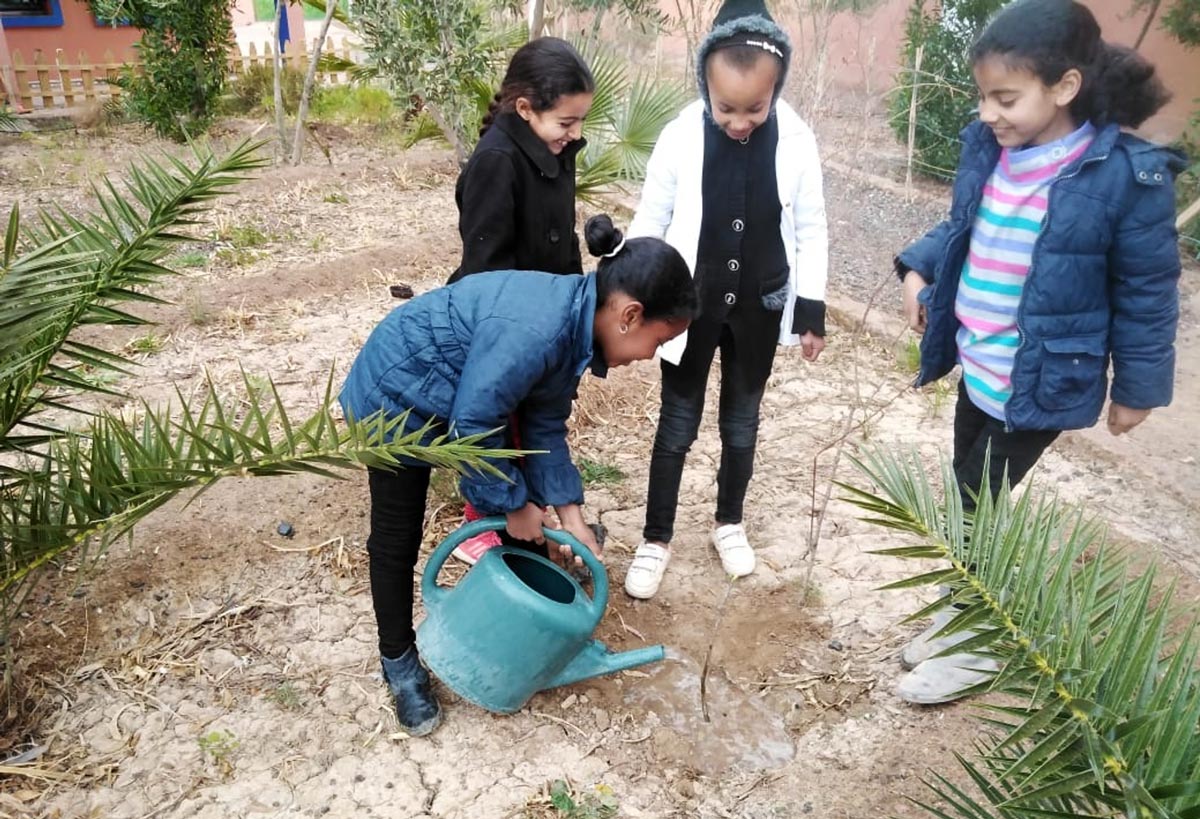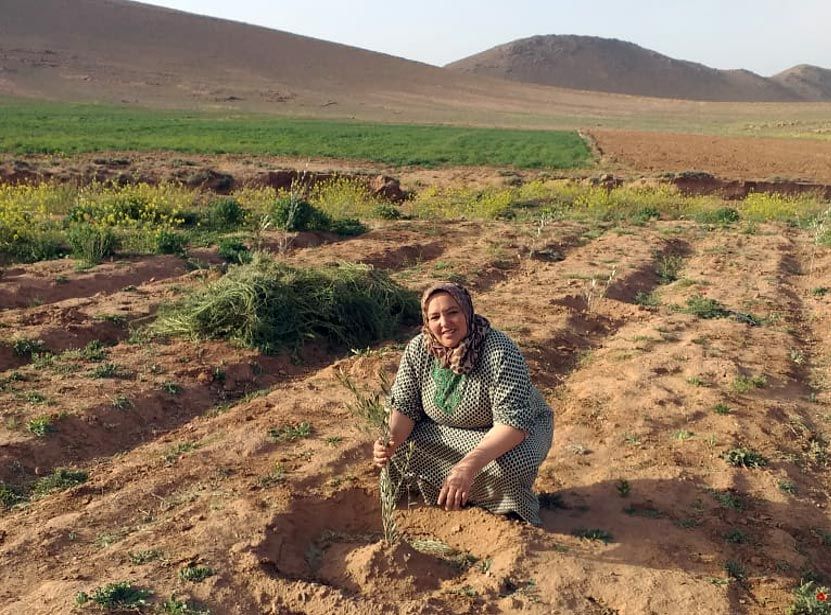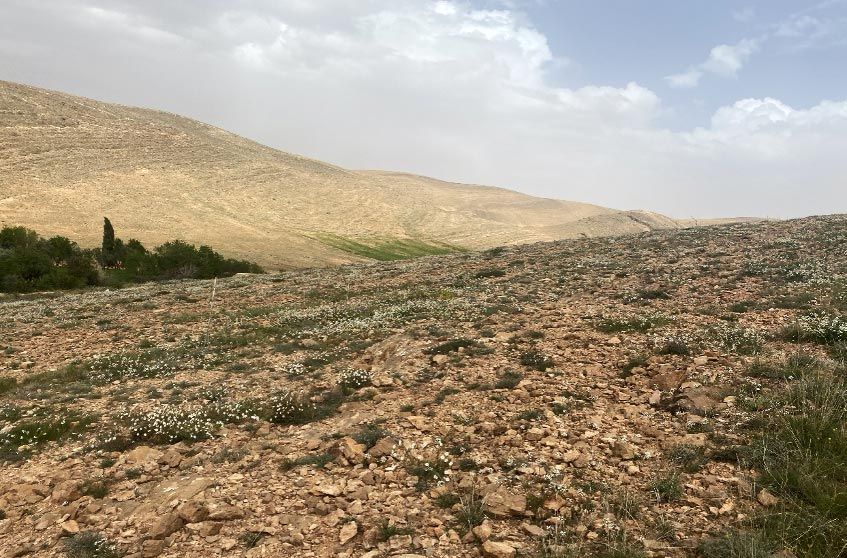
Benefits of planting fruit trees in rural Morocco
In Morocco’s rural areas, economic development goes hand in hand with the implementation of collective and sustainable agricultural solutions. The virtuous practices of permaculture and agroforestry contribute to boost self-sufficiency, food security and income for local communities.
In partnership with the Ibn Al Baytar association and its president Zoubida Charrouf, Reforest'Action has been running several projects across Morocco since 2017. The goal is to create forests that provide food resources and help promote the development of the economic sector through local cooperatives based on the cultivation of organic fruits. The planting of fruit species adapted to the local climate, such as the olive tree, carob tree or date palm, allows communities to harvest fruits intended to local consumption and sale on markets. The trees planted also provide cover for the underlying food crops.
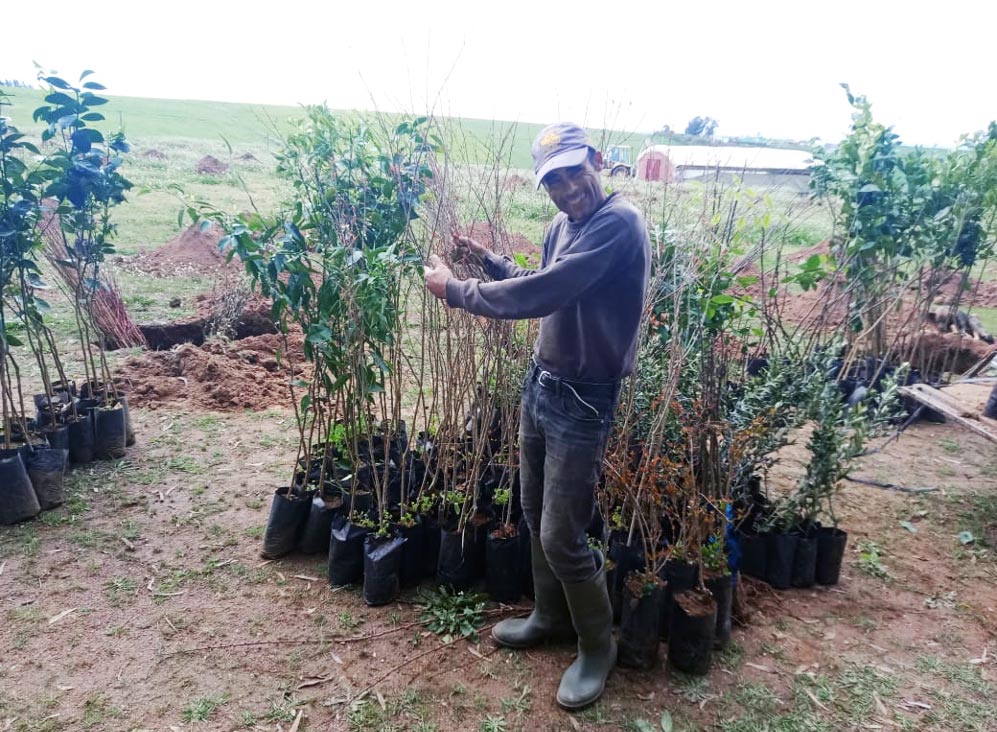
Ten emblematic projects
During the 2020-2021 planting season, as our project kept unfolding in the villages associated to the project such as Alnif or Brachoua, other regions also benefited from the programme.
- In the village of Brachoua, located in the Khémisset province, 600 trees of varied species (quince, pear, apple, prune, walnut, nectarine, peach, apricot, fig, almond, mandarin, olive, avocado and carob trees) were introduced to enrich the permaculture and agroforestry project financed by Reforest’Action since 2017.
- In Aguerd, a village situated in the Essaouira province, 800 olive, grenade and lemon trees were planted in February 2021.
- In Bouznika, in the Benslimane province, 1000 olive, lemon, orange and mandarin trees were planted in March 2021.
- In Ketamz, within the Al Hoceima province, 1000 fug trees were planted in Febrary 2021.
- In the Sidi Youssef Ben Ahmed village, in the Sefrou province, 2000 olive and fig trees were planted in February 2021.
- In March 2021, in Skoura, province of Ouarzazate, 500 carob, almond, fig and pomegranate trees were planted in several school yards and a highschool, with the participation of pupils.
- 10 kilometres away from Agadir, 1100 olive trees were planted in March 2021, in partnership with an agricultural cooperative.
- In the villages of Bouadel and Bani Oualid, in the province of Taounate, 1000 trees of various species (olive, avocado, lemon, almond, peach, apricot, orange, medlar, mandarin and quince trees) were planted in February 2021.
- In the village of Boured, within the province of Taza, 2800 olive trees, 300 fig trees and 400 almond trees were planted in February 2021.
- In the village of Inzerki, in the province of Taroudant, 1500 olive, almond and carob trees were planted in November 2020 in one of the oldest collective apiaries in the world called Taddart Ouguerram (the apiary of the Saint).
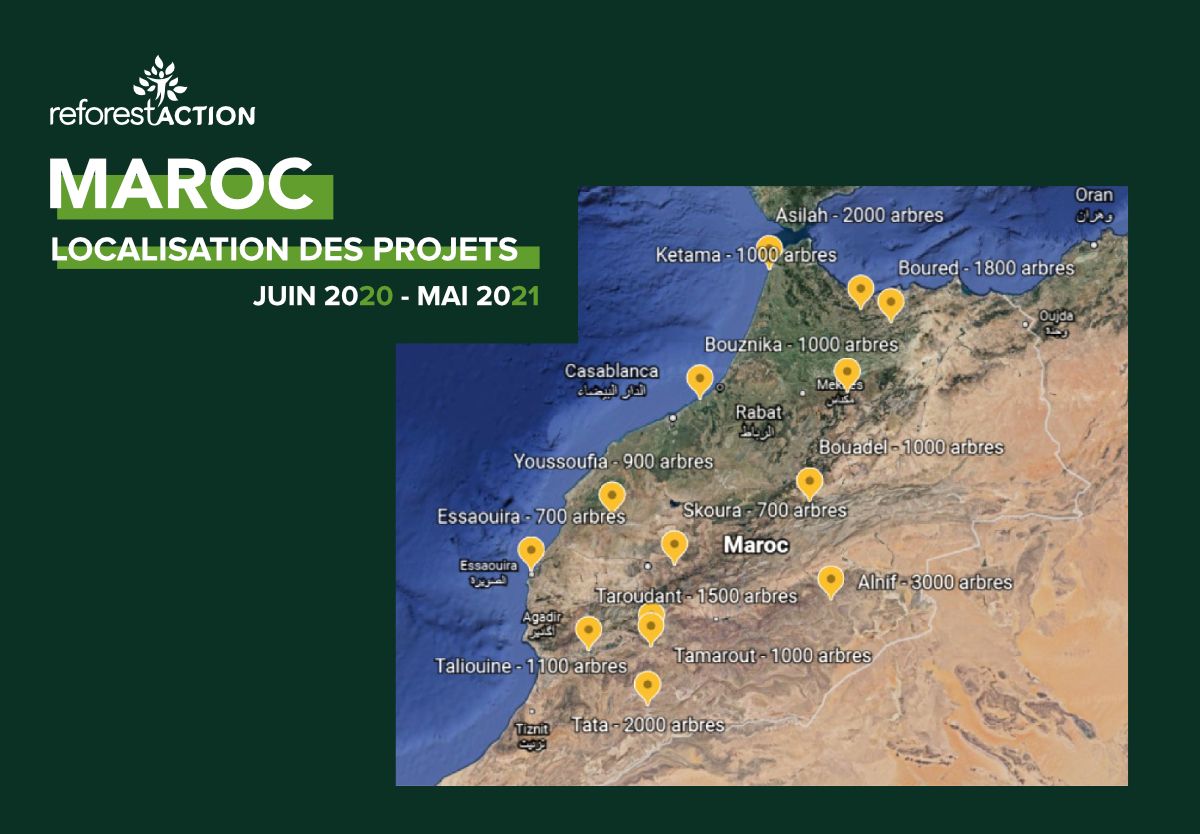
Raising the awareness of the local communities
In order to integrate the communities and raise the awareness of the largest number, the planting process took the form of participatory planting sessions, to which women, children and men from the villages concerned by the plantations were invited by our partner Ibn Al Baytar. These events reminded everyone of the importance of preserving planted trees, both to facilitate harvesting in a few years and to maximize the environmental benefits of the project: the creation of refuges for biodiversity and mitigation of the effects of climate change.
